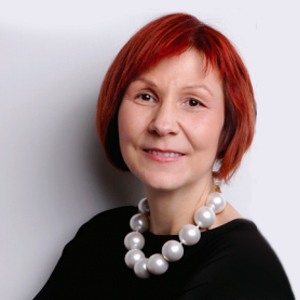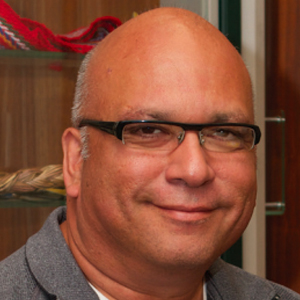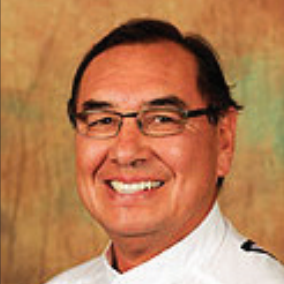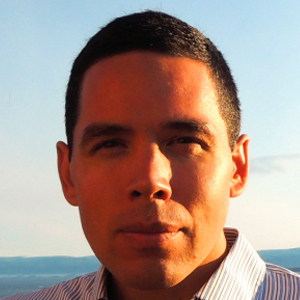Featured Speakers from 2016

Cindy Blackstock, PhD
Gitxsan First Nations
Executive Director of the First Nations Child and Family Caring Society of Canada
Associate Professor, University of Alberta and Director of FNCARES
A member of the Gitksan First Nation, Cindy has 25 years of social work experience in child protection and Indigenous children’s rights. As Director of the First Nations Children’s Action Research and Education Service (FNCARES) at the University of Alberta, her research interests are Indigenous theory and the identification and remediation of structural inequalities affecting First Nations children, youth and families.
Her promotion of culturally based and evidence informed solutions has been recognized by the Nobel Women’s Initiative, the Aboriginal Achievement Foundation, Frontline Defenders and many others.
An author of over 50 publications and a widely sought after public speaker, Cindy has collaborated with other Indigenous leaders to assist the United Nations Committee on the Rights of the Child in the development and adoption of a General Comment on the Rights of Indigenous children. She also recently worked with Indigenous young people, UNICEF and the United Nations Permanent Forum on Indigenous Issues to produce a youth friendly version of the United Nations Declaration on the Rights of Indigenous Peoples.
Cindy is currently completing a Master of Jurisprudence in Children’s Law and Policy at the Loyola University Chicago.

Barry Lavallee, MD, CCFP, FCFP, MClSc (UWO)
Saulteaux/Métis Manitoba
Director, Centre for Aboriginal Health Education, University of Manitoba
Dr. Barry Lavallee is a member of Manitoba First Nation and Métis communities, and is a University of Manitoba trained family physician specializing in Indigenous health and northern practice. His clinical work has focused on the health and healing needs of First Nation and Métis communities. He has a Masters of Clinical Sciences from the University of Western Ontario.
His research and clinical areas are chronic diseases, transgenerational trauma, impact of colonization on Indigenous communities and international Indigenous health. He is the Director of Student Support and Education for the Centre for Aboriginal Health Education, University of Manitoba and Indigenous Health UGME Curriculum Lead for the University of Manitoba.

Chief Wilton Littlechild, LLB, MPhEd
Ermineskin Cree Nation
Commissioner, Truth and Reconciliation Commission of Canada
In 1976, Chief Wilton Littlechild had the distinction of being the first Treaty First Nation person to acquire his law degree from the University of Alberta. He received his Bachelor of Physical Education Degree in 1967 and his Master’s Degree in Physical Education in 1975. In June of 2007, the University of Alberta bestowed the Doctor of Laws Degree on Chief Littlechild for his outstanding achievements.
An avid sportsman and athlete, Chief Littlechild has won more than fifty provincial, regional, national and international championships. He has served as a coach and organizer of sports event – being a founder of the North American Indigenous games; and has been inducted into seven Sports Halls of Fame.
Chief Littlechild is a respected lawyer and operates the law firm of J. Wilton Littlechild, Barrister and Solicitor, which is situated in the Ermineskin Reserve. He is a strong advocate for the rights of Indigenous Peoples and promoter of implementation of the treaties between the Indigenous Peoples of Canada and the Crown, now represented by the federal government. Chief Littlechild also served as the Chairperson for the Commission on First Nations and Métis Peoples and Justice Reform, mandated to review the justice system in the province of Saskatchewan.
Chief Littlechild served as a Member of Parliament from 1988 – 1993 for the riding of Wetaskiwin-Rimby. He served on several senior committees in the House of Commons and was a parliamentary delegate to the United Nations. Chief Littlechild organized a coalition of Indigenous Nations that sought and gained consultative status with the Economic and Social Council of the United Nations. He was re-appointed by the E.C.O.S.O.C. President to represent North America and has completed his second and final term as the North American representative to the UN Permanent Forum on Indigenous Issues.
Chief Littlechild was honoured by being appointed the Honourary Chief for the Maskwacis Crees and also honoured by the Chiefs of the Confederacy of Treaty Six First Nations as the International Chief for Treaty No. 6 Confederacy.

Natan Obed, BA
President
Inuit Tapiriit Kanatami (ITK)
Natan Obed is the President of Inuit Tapiriit Kanatami, the national voice of Canada’s 60,000 Inuit. He is originally from Nain, the northernmost community in Labrador’s Nunatsiavut region, and now lives in Ottawa. For 10 years he lived in Iqaluit, Nunavut, and worked as the Director of Social and Cultural Development for Nunavut Tunngavik Inc., the organization that represents the rights of Nunavut Inuit. He has devoted his career to working with Inuit representational organizations to improve the well being of Inuit in Canada.
Plenary Speakers
Evan Adams, MD, MPH
Sliammon First Nation, Coast Salish Tribe
Chief Medical Officer of the First Nations Health Authority
Vancouver, British Columbia
Evan Tlesla II Adams is a Coast Salish actor and physician from the Tla’amin First Nation near Powell River, BC.
Evan stars as Thomas Builds-The-Fire in ShadowCatcher Entertainment’s SMOKE SIGNALS, written by Sherman Alexie and directed by Chris Eyre. He also won Best Actor awards from the American Indian Film Festival, and from First Americans in the Arts, and a 1999 Independent Spirit Award for ‘Best Debut Performance’. He won a 2011 Gemini Award for co-hosting the National Aboriginal Achievement Awards along with Adam Beach.
Aside from his career in the arts, Evan has completed a Medical Doctorate from the University of Calgary in 2002, and a residency in the Aboriginal Family Practice program at St. Paul’s Hospital in Vancouver, BC. Dr. Adams has a Masters of Public Health (2009) from Johns Hopkins University in Baltimore, MD. He was the first-ever Aboriginal Health Physician Advisor in the Office of the Provincial Health Officer, BC Ministry of Health (2007-2012). He was the Deputy Provincial Health Officer for the province of BC from 2012 to 2014. He is currently the Chief Medical Officer of the First Nations Health Authority.
Cindy Blackstock, PhD
Gitxsan First Nations
Executive Director of the First Nations Child and Family Caring Society of Canada
Associate Professor, University of Alberta and Director of FNCARES
A member of the Gitksan First Nation, Cindy has 25 years of social work experience in child protection and Indigenous children’s rights. As Director of the First Nations Children’s Action Research and Education Service (FNCARES) at the University of Alberta, her research interests are Indigenous theory and the identification and remediation of structural inequalities affecting First Nations children, youth and families.
Her promotion of culturally based and evidence informed solutions has been recognized by the Nobel Women’s Initiative, the Aboriginal Achievement Foundation, Frontline Defenders and many others.
An author of over 50 publications and a widely sought after public speaker, Cindy has collaborated with other Indigenous leaders to assist the United Nations Committee on the Rights of the Child in the development and adoption of a General Comment on the Rights of Indigenous children. She also recently worked with Indigenous young people, UNICEF and the United Nations Permanent Forum on Indigenous Issues to produce a youth friendly version of the United Nations Declaration on the Rights of Indigenous Peoples.
Cindy is currently completing a Master of Jurisprudence in Children’s Law and Policy at the Loyola University Chicago.
Ontario Regional Chief Isadore Day
Wiindawtegowinini
Ontario Regional Chief Isadore Day is from Serpent River First Nation, Ontario, which is located in the North Channel of Lake Huron. Born in Elliot Lake and raised in the North, Regional Chief Isadore Day worked in construction, commercial fishing, and in the social services setting. Regional Chief Day’s post-secondary education consists of Social Work, Business and Public Administration and Governance. He and his partner Angela raise their girls in the North and are committed to ensuring that the North remains a key grounding in their lives. He is strong in his commitments to his community and all treaty regions.
Regional Chief Day is an Anishnabe with strong values and ideals about his heritage and has a strong ability to bridge contemporary mainstream ideals and traditional insights and teachings. He has a very strong affinity and connection to the land.
He has been Chief of Serpent River FN since being elected in 2005. Regional Chief Day has a combined total of ten years in leadership. Public service ideas and dedication have seen him involved in various boards, committees, and volunteer positions over the past 15 yrs. With a list of diverse attributes and skills, Regional Chief Day has been welcomed at many tables to share in efforts to make constructive change for the Anishnabek and First Nations at the Regional and National level in recent years. Known as hard hitter on the issues, he has a demeanor that seeks to find ways to highlight and uplift the dignity of others.
He believes that Youth in general have vision and hold leadership keys for success that need to be tapped and brought to the table and legitimized in formal process. His current and recent posts include: various portfolios as Lake Huron Regional Chief;various committees with the Union of Ontario Indians and Chiefs of Ontario. His work at the national level includes a wide range of files.
In 2006, Regional Chief Isadore Day addressed President Bill Clinton in the Ontario Economic Summit and asked the president to reflect on his discussion from the vantage point of First Nations. He was reciprocated with a lengthy input from the president. He has also been quite active with many other levels of leadership from the Prime Ministers Office, the Ontario Premier and scores of MP’s – all focused on one thing: the First Nation Agenda. Chief Day is noted across the country as a visible and relevant leader. He prides himself by being part of a great line of leaders and is a strong team player. He is a natural when called to be a lead advocate on most political files.
Today, Regional Chief Day is quite active on many files in all policy sectors at the local level and provincially. His main focus at all tables with government is First Nation rights, health, social, economies, infrastructure, Quality of Life – and overall, Nationhood based on all facets of what a nation embodies. He sees political justice as being the main goal for First Nation leaders and is emphatic that the Indian Act is colonial oppression and at the root of what must change in all First Nations. He is practical with both high level policy and is a strong grassroots First Nation leader.
As the Ontario Regional Chief, Chief Isadore Day seeks to establish any available partnership that is consistent to placing the future of the Next Generation as a key priority and beneficiary to collective efforts and respect for treaties on which Canada was founded.
M. Margaret Froh
President
Métis Nation of Ontario
Margaret Froh is a Métis lawyer and educator whose career has focused on promoting and supporting strong and healthy Métis, First Nation and Inuit organizations and communities through effective governance, institutions, law, policy and reconciliation processes.
On May 11th, 2016, Margaret became the new President of the Métis Nation of Ontario, succeeding President Gary Lipinski following his recent retirement. Prior to being elected President, Margaret served as the Associate Chief Operating Officer for the MNO. Margaret has also served as in-house legal counsel to the MNO since 2013.
Margaret has been appointed to various committees and advisory groups focussing on access to justice for Indigenous Peoples in Ontario. In 2013, she was appointed by the Province of Ontario to the Debwewin Jury Review Implementation Committee — the committee tasked with overseeing Ontario’s implementation of the 2013 report issued by former Supreme Court of Canada Justice Frank Iacobucci regarding the lack of First Nation representation on Ontario Juries. In September 2014, she was also appointed to Ontario’s new Aboriginal Justice Advisory Group that will advise the Attorney General on Indigenous justice issues.
Margaret is a former President of the Indigenous Bar Association in Canada – the national non-profit professional association representing Métis, First Nations and Inuit lawyers, judges, law professors and students. She is the current Chair of the Indigenous Bar Association’s Law Student Scholarship Foundation, and a former long-time board member and President of Aboriginal Legal Services. She served over eight years as part of the in-house legal counsel group for the Chippewas of Rama First Nation before joining the Métis Nation of Ontario’s senior management team in 2013.
Margaret has guest lectured in a variety of settings, has taught as adjunct faculty at the University of Toronto Faculty of Law, and is a lead faculty member for the Banff Centre’s Indigenous Leadership & Management Program teaching in the areas of Indigenous governance, leadership and management.
Barry Lavallee, MD, CCFP, FCFP, MClSc (UWO)
Saulteaux/Métis Manitoba
Director, Centre for Aboriginal Health Education, University of Manitoba
Dr. Barry Lavallee is a member of Manitoba First Nation and Métis communities, and is a University of Manitoba trained family physician specializing in Indigenous health and northern practice. His clinical work has focused on the health and healing needs of First Nation and Métis communities. He has a Masters of Clinical Sciences from the University of Western Ontario.
His research and clinical areas are chronic diseases, transgenerational trauma, impact of colonization on Indigenous communities and international Indigenous health. He is the Director of Student Support and Education for the Centre for Aboriginal Health Education, University of Manitoba and Indigenous Health UGME Curriculum Lead for the University of Manitoba.
Chief Wilton Littlechild, LLB, MPhEd
Ermineskin Cree Nation
Commissioner, Truth and Reconciliation Commission of Canada
In 1976, Chief Wilton Littlechild had the distinction of being the first Treaty First Nation person to acquire his law degree from the University of Alberta. He received his Bachelor of Physical Education Degree in 1967 and his Master’s Degree in Physical Education in 1975. In June of 2007, the University of Alberta bestowed the Doctor of Laws Degree on Chief Littlechild for his outstanding achievements.
An avid sportsman and athlete, Chief Littlechild has won more than fifty provincial, regional, national and international championships. He has served as a coach and organizer of sports event – being a founder of the North American Indigenous games; and has been inducted into seven Sports Halls of Fame.
Chief Littlechild is a respected lawyer and operates the law firm of J. Wilton Littlechild, Barrister and Solicitor, which is situated in the Ermineskin Reserve. He is a strong advocate for the rights of Indigenous Peoples and promoter of implementation of the treaties between the Indigenous Peoples of Canada and the Crown, now represented by the federal government. Chief Littlechild also served as the Chairperson for the Commission on First Nations and Métis Peoples and Justice Reform, mandated to review the justice system in the province of Saskatchewan.
Chief Littlechild served as a Member of Parliament from 1988 – 1993 for the riding of Wetaskiwin-Rimby. He served on several senior committees in the House of Commons and was a parliamentary delegate to the United Nations. Chief Littlechild organized a coalition of Indigenous Nations that sought and gained consultative status with the Economic and Social Council of the United Nations. He was re-appointed by the E.C.O.S.O.C. President to represent North America and has completed his second and final term as the North American representative to the UN Permanent Forum on Indigenous Issues.
Chief Littlechild was honoured by being appointed the Honourary Chief for the Maskwacis Crees and also honoured by the Chiefs of the Confederacy of Treaty Six First Nations as the International Chief for Treaty No. 6 Confederacy.
Ian Mosby, PhD
Author and Historian
Nutritional Experiments at First Nations Residential Schools
Dr. Ian Mosby is an award winning historian of food, health and colonialism in twentieth century Canada and is currently a Postdoctoral Fellow at McMaster University’s L.R. Wilson Institute for Canadian History. He recently made international headlines for his work on the history of human biomedical experimentation in a number of residential schools and First Nations during the 1940s and 1950s. You can read more about his research at www.ianmosby.ca.
Natan Obed, BA
President
Inuit Tapiriit Kanatami (ITK)
Natan Obed is the President of Inuit Tapiriit Kanatami, the national voice of Canada’s 60,000 Inuit. He is originally from Nain, the northernmost community in Labrador’s Nunatsiavut region, and now lives in Ottawa. For 10 years he lived in Iqaluit, Nunavut, and worked as the Director of Social and Cultural Development for Nunavut Tunngavik Inc., the organization that represents the rights of Nunavut Inuit. He has devoted his career to working with Inuit representational organizations to improve the well being of Inuit in Canada.
Thomas Wong, MD, MPH, CCFP, FRCPC
Chief Medical Officer of Public Health and Executive Director
Office of Population and Public Health
First Nations and Inuit Health Branch, Health Canada
Dr. Thomas Wong, is the Chief Medical Officer of Public Health and the Executive Director for the Office of Population and Public Health at the First Nations and Inuit Health Branch of Health Canada. He was trained in family medicine, internal medicine, infectious diseases and public health at McGill, Harvard and Columbia. His public health work includes engagement with Indigenous Communities, HIV, hepatitis C, sexually transmitted infections, tuberculosis, influenza, vaccine preventable diseases, antimicrobial resistance, chronic diseases, mental health, addiction and health disparities. Dr. Wong sits on multiple national and international committees and has academic appointments at both the University of Ottawa and the University of Toronto.
